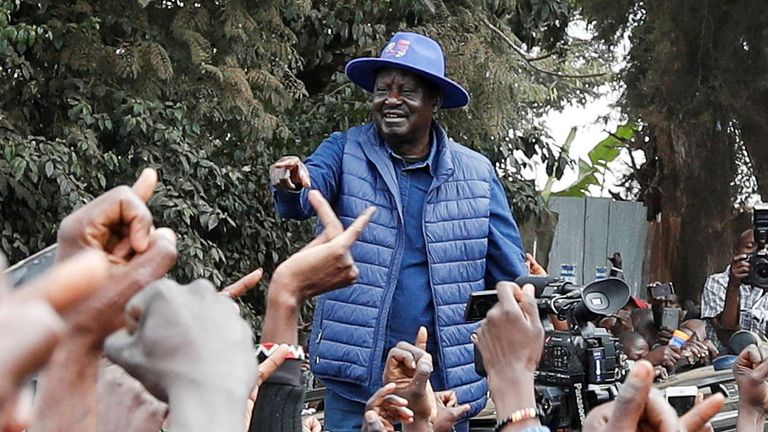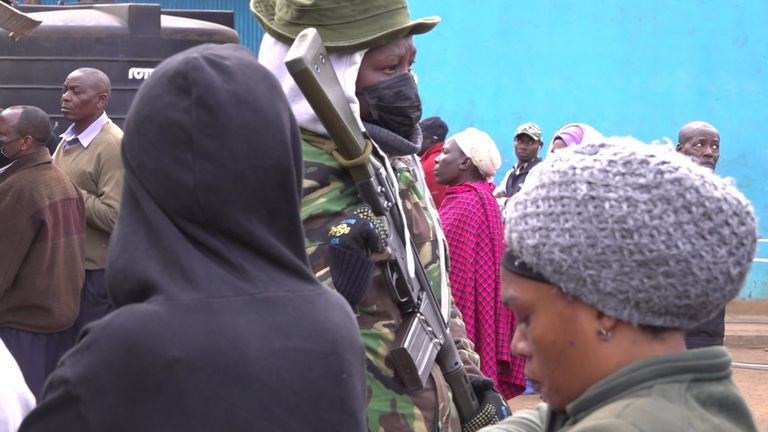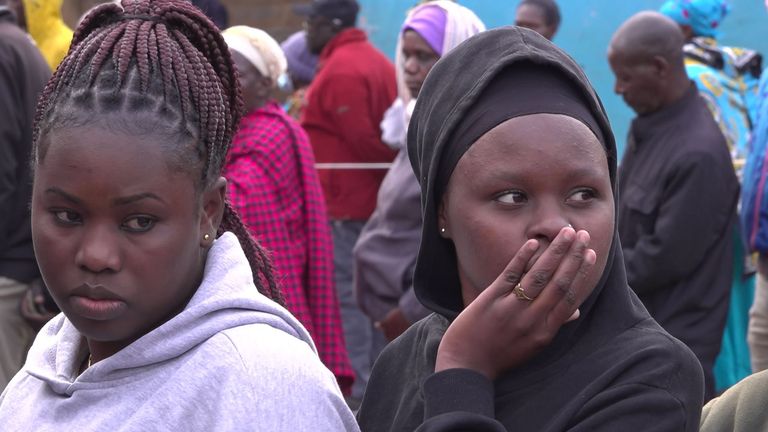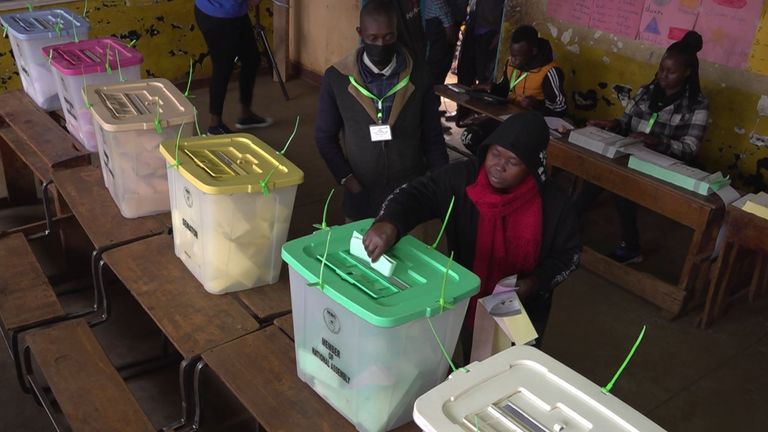Millions of Kenyans have voted to nominate the country’s next president.
Polls are now closed after a hotly contested race pitting former Prime Minister Raila Odinga against current Vice President William Ruto.
An hour before the end of the vote, the electoral commission announced that just over 12 million people had voted.
From dawn, long queues snaked through the streets of Kibera – one of the country’s poorest regions – with thousands of people waiting to choose their next leader.
A quarter of a million people live here on the outskirts of the capital, Nairobi, and are feeling the pressure of a crippling cost of living crisis, which has seen food and fuel prices soar in recent months.
The state of the economy was the top election issue, with both leading candidates promising solutions.
Mr Ruto has centered his campaign on building a “hustler nation” attractive to disenfranchised young voters. It’s a tantalizing platform in a country with high youth unemployment and nearly 40% of eligible voters are under 35.
But Kibera has long been a stronghold of Mr. Odinga. He is running for the fifth time and his supporters are convinced that he will win.
“We’ve been voting for a long time and we haven’t seen him be president, but he will be our president now,” Caroline says, among a crowd trying to catch a glimpse of their elected leader.
Nearly 200 miles away, in the Turbo constituency, Mr Ruto cast his ballot, confident of success.
“It is incumbent on all of us to respect the choices of the Kenyan people as we started today in all parts of the Republic of Kenya, and I look forward to a victorious day,” he said.
As East Africa’s largest economy and a key security partner for Western nations, these elections are seen as a critical test for African democracy.
Joining the thousands of international election observers on the ground are former heads of state, underscoring how important this moment is for the entire region.
Speaking to Sky News, Tanzania’s former president Jakaya Kikwete said he hoped the day would pass peacefully: “You can see for yourself,” he said. “Things are calm. It’s orderly. That’s all the Kenyan people need.”
As the day progressed, the initial enthusiasm we witnessed in the morning seemed to dissipate as voters poured into the polling stations.
At first, many Kenyans told us they feared the violence they witnessed in previous campaigns could happen again. Some even packed up and planned to leave town until the outcome was clearer.
In 2008, more than a thousand people were killed and half a million displaced after a disputed election. Subsequent elections in 2013 and 2017 were also marked by violence, albeit on a lesser scale.
Outside a quiet polling station in central Nairobi, I met Kenyan author and analyst Nanjala Nyabola, who had just voted.
“The thing to understand about election violence in Kenya is that it is not spontaneous,” she said.
“It’s systematic, coordinated, funded at the highest level. So it’s not so much the people people should be worried about, it’s the people who have the power. It’s this elite pact that will make the difference. How will the loser take that loss?”
As the lines weakened behind her, she continued to give her forecast.
“The candidate who will get the most votes in Kenya this time around is apathy,” she said.
At 4 p.m., as the election deadline approached, his prophecy came true. Only 56% of the 22.1 million registered voters had voted.





